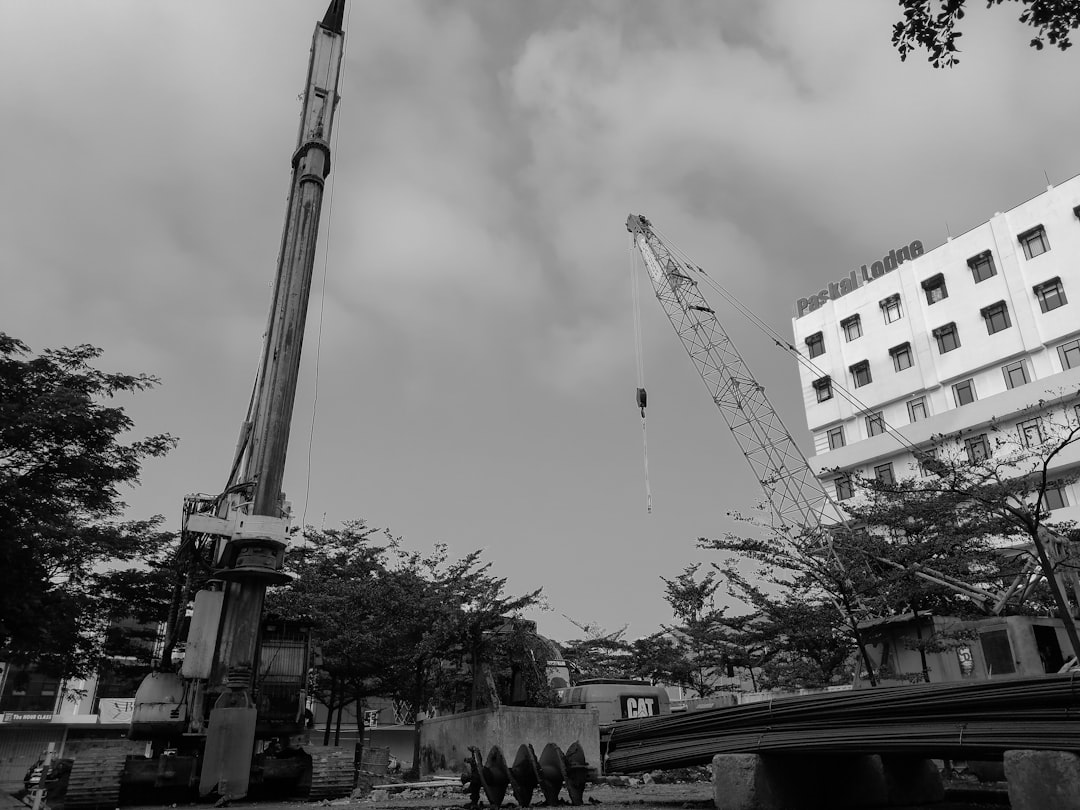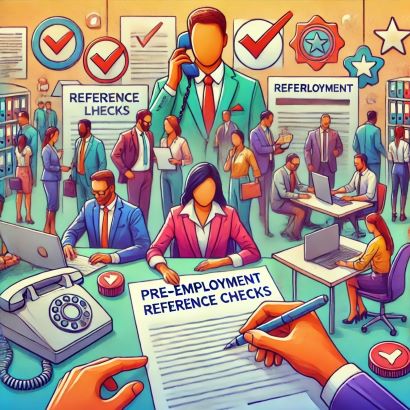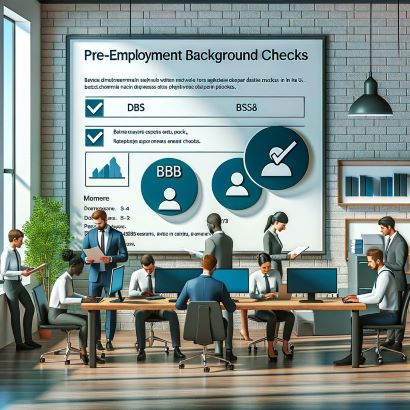

BPSS checks are governed by standards set by the UK government, specifically designed to comply with national security guidelines for personnel working in secure environments. Maintain your BPSS clearance by understanding the validity period and renewal requirements. These include the accuracy of the information provided by the applicant, the speed with which previous employers respond to verification requests, and the specific requirements of the employing organization.
The right to work check under BPSS serves as a legal safeguard that prevents illegal employment. Criminal Records Check: Verification of any unspent criminal records is crucial for evaluating suitability for BPSS clearance. right to work checks as well as a basic dbs checks are part of bpss clearance in the uk. Risk management
Continuous monitoring and updating of BPSS clearance are recommended for roles that involve ongoing security concerns. Be honest and consistent to avoid failing the BPSS check.
By verifying nationality, immigration status, employment history, and criminal records, organizations can assess the suitability of candidates for positions requiring access to sensitive information like the Public Services Network (PSN). Your BPSS clearance is typically valid for 3 years from the date of issue.
To guarantee a thorough evaluation of candidates, organizations typically follow these steps:Applicants need to provide documents like a passport or driver's license to confirm their identity. Employers must ensure that their BPSS processes comply with the Equality Act 2010, avoiding any form of discrimination based on protected characteristics during the vetting process. Completing BPSS successfully indicates that an individual has met the baseline requirements for trustworthiness and reliability, which are essential for more in-depth investigations.
While BPSS checks are used primarily as a pre-employment screening tool for government-related positions, DBS checks are broader and focus on determining an individual's suitability to work with vulnerable groups including children and adults. It's essential to provide accurate information and meet the trustworthiness standards to pass the screening process.
This step ensures that the individual has the right to work and is not illegally residing in the country, which is particularly important for maintaining lawful employment practices in sensitive environments. Roles in sectors such as energy, communications, and finance necessitate BPSS clearance to guarantee the protection of sensitive information.

Follow our guide to apply for BPSS clearance successfully.
Posted by Jasmine Roberts on 2024-10-08

Keep your BPSS clearance active with proper renewals.
Posted by Jasmine Roberts on 2024-06-24
Posted by Jasmine Roberts on 2024-06-14

Learn how employers can ensure BPSS compliance.
Posted by Jasmine Roberts on 2024-06-08

Avoid these common BPSS clearance application mistakes.
Posted by Jasmine Roberts on 2024-05-29

Discover what employers verify during BPSS checks.
Posted by Jasmine Roberts on 2024-05-10

Learn the essential requirements for BPSS clearance approval.
Posted by Jasmine Roberts on 2024-04-27

Learn the differences between BPSS and CTC clearance.
Posted by Jasmine Roberts on 2024-02-10
The role of verifying the right to work is a crucial component of the Baseline Personnel Security Standard (BPSS) checks in the UK. Reviewing a candidate's employment history is another vital component of the BPSS checks. Employers should manage expectations and provide candidates with as much information as possible about what to expect during the BPSS clearance process to ensure a smooth and efficient vetting experience.
Providing a valid passport or driver's license is essential for verifying your identity when applying for BPSS clearance. Each of these areas is carefully examined to ensure that the individual does not pose a security risk.
Some organizations require a new DBS check every three years or have policies for more frequent updates, reflecting the ongoing need to protect vulnerable populations. When distinguishing between BPSS and DBS checks, it's vital to recognize that BPSS focuses on national security vetting, identity verification, and right to work status, while DBS solely examines an individual's criminal record.
To get an accurate cost estimate, it's advisable to request a quote from a trustworthy screening provider. This process involves reaching out to past employers to confirm periods of employment, roles held, and reasons for leaving, which can take time if past employers are slow to respond or if the candidate has worked internationally.

In conclusion, digital technology has profoundly impacted the BPSS process by making it faster, more accurate, and more secure. Depending on the severity and nature of the crime, certain offenses may disqualify individuals from obtaining BPSS clearance. Addressing inconsistencies or gaps in the information provided by the individual undergoing BPSS clearance may necessitate additional time and effort to resolve.
This involves informing candidates that a BPSS check will be conducted, what the check entails, and what specific information will be gathered. Yes, you can fail a BPSS check if there are discrepancies in your identity verification, right to work status, criminal records, or employment history.
To continue accessing government assets, renewal of your BPSS clearance is necessary after this 3-year period. Delving into the intricacies of BPSS clearance can reveal a world of protocols, challenges, and future adaptations that are essential for maintaining security standards.
Transportation officials, especially those involved in overseeing or managing public transport security, require BPSS clearance due to the potential risks associated with transportation infrastructure and mass transit systems. For example, individuals who have frequently moved or changed jobs may require more extensive checks on their background, thus extending the process. Enhanced DBS


BPSS checks typically include four main elements: identity verification, employment history check, right to work confirmation, and a basic criminal record check. These documents can include passports, biometric residence permits, national identity cards, and work visas. Automated systems can cross-reference and validate information against multiple databases in real-time, ensuring that discrepancies are quickly identified and addressed.
A key component of the BPSS check is the verification of documents, which can be time-consuming. In contrast, BS7858:2019 is tailored for roles where employees handle sensitive information, work in secure environments, or where there is a high requirement for trust and security integrity.
As technology evolves, it will continue to shape how Baseline Personnel Security Standard checks are conducted, promising even greater improvements in efficiency and security in the future.

BS7858:2019 checks, due to their more detailed nature, can take significantly longer - up to 12 weeks or more - as they require gathering more comprehensive information and thorough verification processes from multiple sources. The detailed guidelines of BS7858:2019 make it indispensable for security-sensitive industries looking to uphold the highest standards of reliability and safety. These documents serve as primary forms of identification and are vital in confirming who you are.
Ensuring that all employees undergo BPSS clearance before taking on roles that involve access to sensitive information is key to maintaining operational security and complying with national security regulations. This involves verifying previous employment details, gaps in employment, and reasons for leaving previous positions.
To secure BPSS clearance, it's imperative to provide the necessary documents such as proof of identity, employment history, national and immigration status, details on criminal records, and periods spent abroad. UK government This is generally quicker than more detailed checks, such as those performed for higher levels of security clearance, but can still be delayed if there are issues with the national criminal records database or if the individual has spent significant time overseas. Cloud technology plays a pivotal role in the BPSS process by providing a centralized platform for storing and accessing data across different locations and devices securely.
Ensuring that all employees have been thoroughly checked and are legally allowed to work helps maintain the security standards necessary for sensitive roles, particularly in government and defense. This documentation can be critical in proving that the employer has diligently followed legal requirements should their compliance ever be questioned.
For roles where exposure to SECRET and TOP SECRET information is possible, BPSS clearance becomes even more significant in safeguarding classified data. The use of digital platforms in the BPSS process facilitates better communication and document management.
Moreover, digital technology supports ongoing monitoring and updating of BPSS clearances. By undergoing this screening, you not only demonstrate your trustworthiness but also contribute to maintaining the security and confidentiality of sensitive information within your organization.

BPSS vetting includes checking identity details such as name, address, and date of birth, along with employment history, criminal record, and legal right-to-work status.
BPSS Clearance is legally required for certain roles involving access to sensitive government data or secure environments. Employers must comply with UK vetting policies.
Employers verify BPSS eligibility through document checks, identity verification, criminal records, and references. Accurate and complete submissions speed up the process.
Yes, international applicants can apply for BPSS Clearance if they meet the eligibility criteria, including having legal authorization to work in the UK and providing required documentation.
BPSS Clearance is generally not transferable. Each employer may conduct its own vetting process to ensure compliance with internal security policies.
Renewal of BPSS Clearance depends on the employer’s policies and job-specific requirements. Some employers may require periodic reviews to maintain clearance validity.